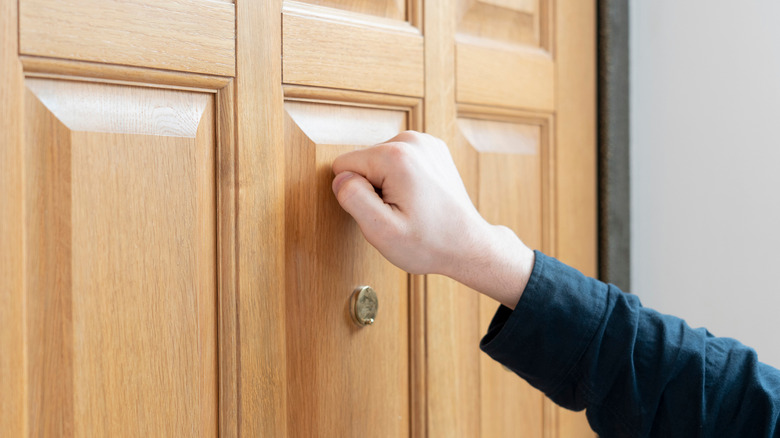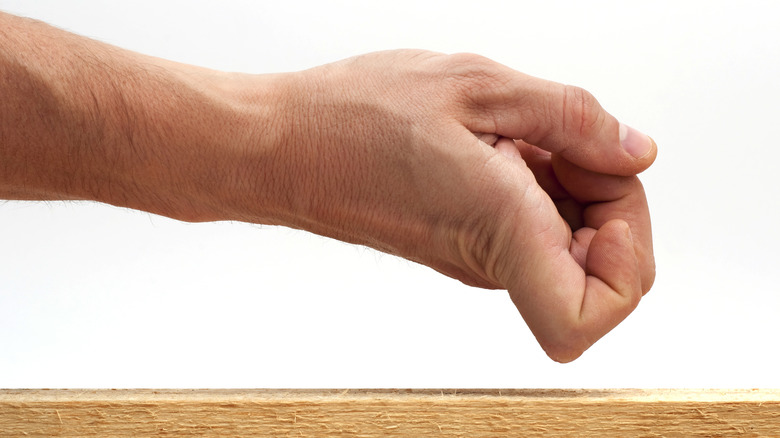Where The Phrase 'Knock On Wood' Came From
Even if you don't typically consider yourself a superstitious person, chances are at some point you've said "knock on wood," which means something like "wish me luck." Perhaps in one instance, you even rapped your knuckles on the table. If that was followed by good fortune, you might have been convinced that there's actually something to it beyond coincidence. After all, superstitions are often formed when something good or bad — which may have happened randomly — occurs after a specific event or action, leading you to equate correlation with causation.
Interestingly, many cultures all over the world use the phrase "knock on wood," and it means largely the same thing with only slight variations. In Britain, "knock on wood," is interchangeable with "touch wood," and in Turkey, tugging an earlobe before knocking on wood twice is the best way to ward off misfortune, per History. But how, exactly, did something as unlikely as knocking on wood come to be associated with good luck? And where did the phrase "knock on wood" come from?
There are several theories
There are, in fact, a few theories about where the saying "knock on wood" came from. One of the most common involves an old children's schoolyard game from Britain called "Tiggy Touchwood." Similar to how children play tag today, if a child touched wood — any kind of wood — while playing the game, they were considered safe, similar to what the bases represent in baseball, per Reader's Digest.
Another supposition about the origins of "knock on wood" dates back before Christ, when pagan beliefs were still practiced all throughout Europe. The Celts, who were native to the British Isles, believed spirits inhabited trees, and that knocking on them was a way to show gratitude, or to summon those spirits for protection. Christ's crucifix, which was made of wood, may have been the phrase's bridge between the pagan and Christian worlds, according to History.
We may never know for sure how, when, why, and from whom, the saying was passed down to us. Next time you need to say thanks for a stroke of good fortune, though, remember to knock on wood just to see what happens.

